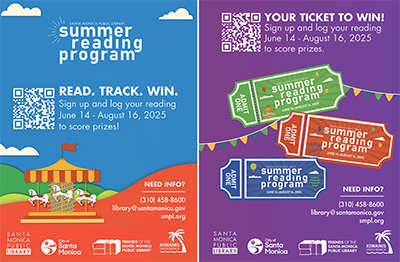Summer Reading
Page Navigation
Summer Reading 2025-26
-
 There's lots of research that shows that children's reading and math skills erode during summer – causing them to have to re-learn things in the fall and sometimes creating gaps that they can never bridge. For example, some studies have shown that children in 3rd-5th grades lost on average about 20-27% of their school year gains in math during summer break. Younger children are at risk of the greatest learning loss because they're at a crucial stage in their development. In K-1-2, learning follows a curve that accelerates rapidly and skills like decoding, letter knowledge, and word reading skills are very susceptible to decay without frequent practice.
There's lots of research that shows that children's reading and math skills erode during summer – causing them to have to re-learn things in the fall and sometimes creating gaps that they can never bridge. For example, some studies have shown that children in 3rd-5th grades lost on average about 20-27% of their school year gains in math during summer break. Younger children are at risk of the greatest learning loss because they're at a crucial stage in their development. In K-1-2, learning follows a curve that accelerates rapidly and skills like decoding, letter knowledge, and word reading skills are very susceptible to decay without frequent practice.The phenomenon of the summer slide – the significant loss of knowledge during summer vacation – is well documented, and it can be a cumulative or snowball effect with each additional year. But there are ways parents can help slow or stop the slide. Here are some ideas and resources for keeping young minds active during the summer:
- Summer Reading Programs: Take advantage of summer reading programs at your local library, like the Santa Monica Summer Reading Challenge. Kids can sign up for 10 and 20-hour challenges, and receive a tote bag, coupon from the Friends of the Library Bookstore, and log in to track reading minutes and activities during the summer. At the halfway mark and upon completing their challenge, kids can choose from a variety of fun prizes, while supplies last. Please sign up! Families - please go down to the library and sign your kids up. It's so much fun, and it will give your kids an alternative to being on screens!
- Encourage reading and let kids read what they want. Give children access to a wide variety of books they enjoy and are able to comprehend. Here are a few lists of recommendations based on reading level (your child's teacher can tell you their reading level) Fiction Series, Non-Fiction Series, Graphic Novels.
- Smart Play: Make time for games and puzzles. Card games, matching, memory games, or games that find patterns all keep children's brains engaged. There are plenty of ways to get children engaged and help them flex their brain power without turning it into a tutoring session.
- Explore Outside: Get out of the house. Experts have found that novelty stimulates the brain and promotes learning. Visiting a historic site or even simply reading together at the park can help your child get more excited about reading and learning.
- Tap into museums, parks, and other community resources. Here is a list of 37 local museums that are accessible to children – many of which have free admission.
So, keep your child reading and thinking over the summer -- it’s important for maintaining skills and fostering a love of learning. Wherever your summer takes you, let's make it a time of exploration, growth, and fun for our kids!
- Summer Reading Programs: Take advantage of summer reading programs at your local library, like the Santa Monica Summer Reading Challenge. Kids can sign up for 10 and 20-hour challenges, and receive a tote bag, coupon from the Friends of the Library Bookstore, and log in to track reading minutes and activities during the summer. At the halfway mark and upon completing their challenge, kids can choose from a variety of fun prizes, while supplies last. Please sign up! Families - please go down to the library and sign your kids up. It's so much fun, and it will give your kids an alternative to being on screens!

